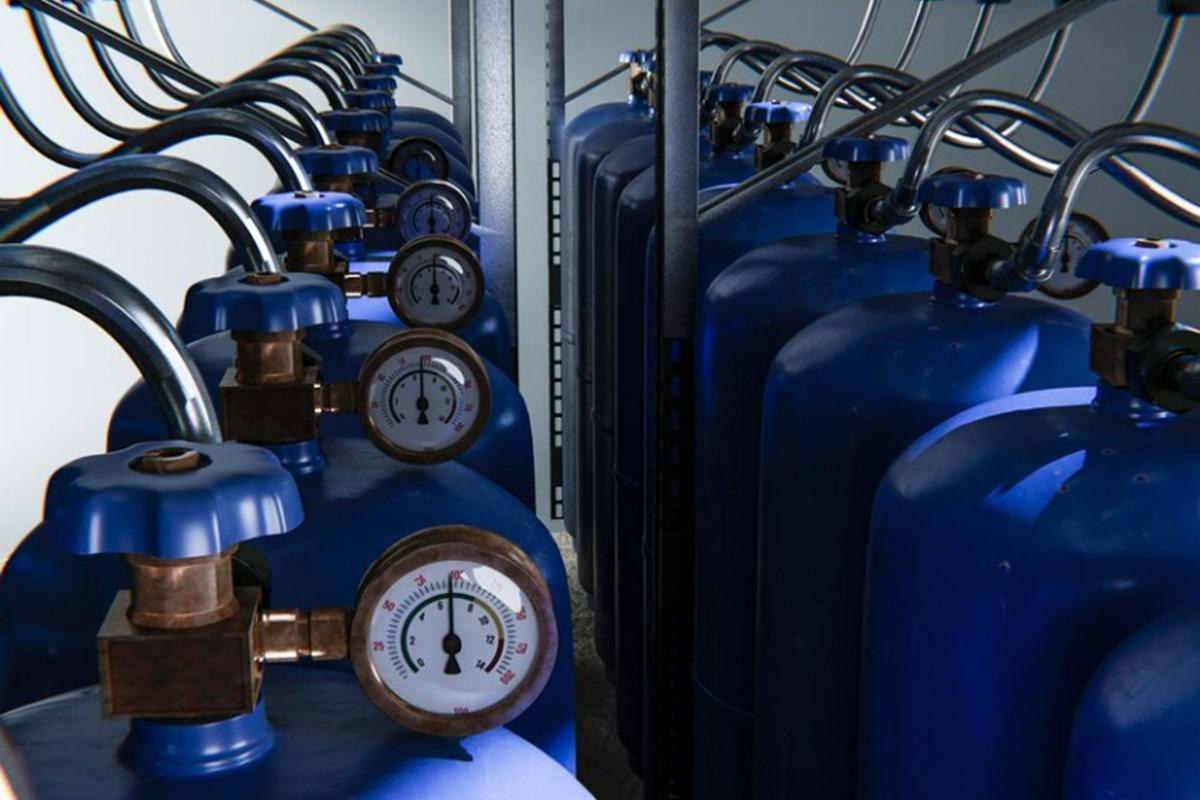The Baltic states continue to purchase “toxic” Russian gas: why sanctions don’t work
[ad_1]

“Unfriendly” EU countries are increasing LNG imports from Moscow
The sanctions refusal of Russian hydrocarbons by Western consumers can largely be considered posturing or an elementary economic deception. Having abandoned relatively cheap pipeline gas from our country, EU countries, on the eve of the winter season, significantly increased the purchase of liquefied energy resources, which have not yet been subject to price bans and restrictions. Neither Spain, nor France, nor even Estonia or Lithuania, who previously categorically rejected the use of Russian “toxic” hydrocarbons, are averse to buying LNG from Russia.
In 2023, European countries purchased more than half of the liquefied natural gas (LNG) exported by Russia. As the British Telegraph emphasizes, citing Eurostat data, “despite the promise to abandon the use of Russian fossil fuels, the number of cargo ships transporting LNG from Russia to Europe has increased significantly.” China, with which Russia’s energy ties are growing day by day, of course, took first place, but “silver” and “bronze” went to seemingly “unfriendly” Spain and France. Moreover, Estonia and Lithuania were among the large importers of Russian liquefied raw materials, purchasing LNG from domestic producers in an amount exceeding 6 billion euros.
For the Baltic republics, the costs of providing energy to their population are at a critical level. Lithuania’s GDP in the first quarter of 2023 decreased by 2.5% to 16 billion euros. In Estonia, everything is much worse: according to the results of the second quarter, the country’s gross domestic product decreased by almost 3% – to 9.4 billion euros. It is obvious that both countries paid about half of their annual financial capital for the acquisition of energy potential.
According to Dmitry Alexandrov, head of the analytical research department at IVA Partners, cheap Russian gas supplied via routes established in Soviet and post-Soviet times was one of the elements of the high competitiveness of the industry of Central Europe. The financial problems of the countries of the Old World that have arisen in the last year and a half have turned out to be the main factor deteriorating the economic condition of EU members.
“The increase in cash costs for the purchase of liquefied gas, which in theory should replace pipeline supplies of “blue fuel” from Russia, will continue. Some dubious trading operations are already noticeable, financially affecting the supply of energy resources to European consumers in the coming winter, an American stock trader told MK on anonymous terms. — There is a serious struggle for LNG produced in the Middle East and supplied from the producing regions of the North Sea: for consumers in Asia and North-West Europe, the cost of hydrocarbons continues to rise. The difference in price between LNG for counterparties from Asia and North-West Europe has increased to $110 per thousand cubic meters.” Delivery of American liquefied raw materials to Asian clients is becoming more and more expensive and problematic – transport companies are losing money and refusing such expeditions, our interlocutor says.
According to the Automatic Identification System, which regulates the rules of international shipping and the transportation of energy cargo, more than 80 tankers have accumulated on both sides of the Panama Canal – half of them transporting oil, the other half carrying LNG. “The current warm weather has become a reason for complicating the shortest route between the Atlantic and Pacific oceans – this road has temporarily become shallow and cannot serve the same number of ships. The surcharge for speedy passage of the canal is already $2 million per tanker. Most of the gas carriers go to Asia along an inert route – past Africa. Delivery of liquefied gas is becoming more costly and lengthy: up to 10 thousand kilometers of extra distance – the new prices do not worry EU officials, since ordinary consumers have to pay for the increased traffic,” — says an international trader.
The most prosperous countries in terms of energy supply in Europe are Switzerland, Norway and Luxembourg. These states have found alternative suppliers of “blue fuel”. However, the high prices set by Qatar, the USA and other producers of liquefied hydrocarbons, as practice shows, force Europeans, contrary to their political positions, to pay attention to fuel from our country.
“Russian companies can successfully take advantage of the lower cost of LNG production and at the same time actively work in regions that do not apply anti-Russian sanctions, for example, in Asia,” Dmitry Alexandrov is confident. According to him, Russian raw materials enterprises are ready to enter into competition for the global LNG market, especially since this sector is not yet subject to Western sanctions.
[ad_2]
Source link






